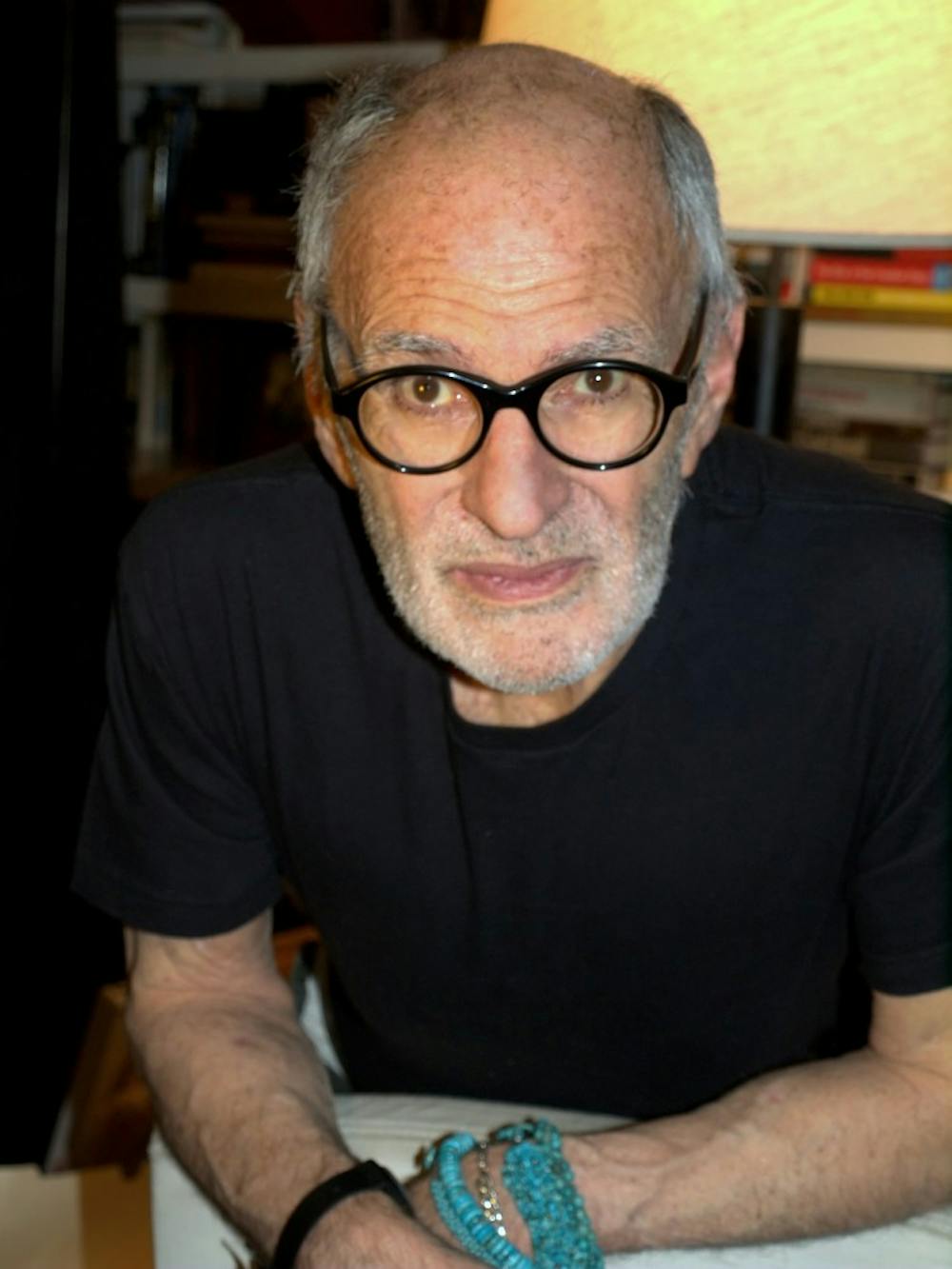The Penn LGBTQ Center for QPenn brought gay-rights and AIDS activist, playwright and author Larry Kramer to Penn on Thursday night. Kramer is the founder of the AIDS Coalition to Unleash Power, or ACT UP, a protest organization that fights for the rights of gay men and raises awareness for the importance of AIDS funding. His most famous novel is called "Faggots," which is known as a provocative depiction of gay culture in New York City before the late 1970s AIDS epidemic.
The event began with opening remarks from Bob Schoenberg, the founder of the LGBTQ Center at Penn.
QPenn organizer Cody Smith said he expected Kramer's life story to resonate with the LGBTQ community.
“First, I thought Larry Kramer's speech was excellent and inspiring. His life story is one that is entwined with the beginnings of the modern LGBT movement and as an HIV-positive man and activist, he provides a link to the AIDS crisis that feels completely distanced from young queer people today, but is in fact very much present especially in light of recent developments in HIV prevention and treatment,” he said.
Kramer grew up in Washington during World War II, where homophobia was rampant and affected his everyday life.
“I could not walk into a bar, could not walk among other gay men … Washington was a hot bed for people out to get gay people,” he said.
Upon graduating high school, Kramer attended Yale University. He described how college campuses were not nearly as accepting of homosexuals as they are today.
“Yale was just as bad … it was different then; you knew you were different,” he said.
Overwhelmed by the discrimination he faced at college, he was pushed into one of the deepest depressions of his life and at one point attempted suicide. Kramer’s brother convinced him to see a therapist, who helped him get back on his feet. With the support of his brother and therapist, Kramer successfully finished his time at Yale and landed a job as a messenger for the William Morris Agency for Entertainment. And once he got his foot in the door of show business, Kramer eventually worked his way up to become a producer for Columbia Pictures.
Although he enjoyed working for Columbia Pictures, Kramer maintained a desire to write about gay culture. At this time, however, no studio would produce a film about being gay. He left Columbia and began writing his own plays, "some of which were very well received,” he said.
As the AIDS epidemic grew through the 1980s, gay men suffered in large numbers.
“We were dying like flies, half of [this audience] would be dead … [You] could not walk down the village without someone telling you about someone who died or would be sick,” he said.
Kramer's background combined with the discrimination against homosexuals in hospitals compelled Kramer to protest. Sometimes he stood on the side of the street, holding provocative signs that read “genocide is going on” and “Ronald Reagan is a murderer.”
These actions were not well received.
“I was literally a pariah … it was hard not to know your place in the world but you didn’t know what to do about it,” he said.
The alienation did not discourage Kramer from advocating for more research devoted to finding a cure for AIDS. By 1986, there was still no cure for the illness, and the gay community was becoming more and more frightened.
“Guys were scared and angry and wanted to fight,” he said.
In an attempt to rally and organize the gay community, he gave a speech at the LGBT Community Center in New York City. During the protest, he had half of the attendees stand up and told them they were the half that would die from AIDS if they did not get any treatment. As a result of Kramer’s oratory skills and charisma, ACT UP was created.
“Slowly we were able to work our way into a position of being heard … it was the single greatest accomplishment of the gay community,” he said.
In 1995, the scientific community devised an effective treatment for the illness. Kramer said it was a long time coming as 80 million were already infected with AIDS and 40 million died from the disease by that time. Still, he attributed the discovery of the treatment to ACT UP's efforts.
“ACT UP was an incredible achievement … the drugs were there because of us,” he said.
Kramer encouraged attendees to find a cause that compels them to fight for justice.
“If you have a voice, find out … you should not have to ask why, [you] should be able to realize that you do not have equality,” he said.
The Daily Pennsylvanian is an independent, student-run newspaper. Please consider making a donation to support the coverage that shapes the University. Your generosity ensures a future of strong journalism at Penn.
DonatePlease note All comments are eligible for publication in The Daily Pennsylvanian.









